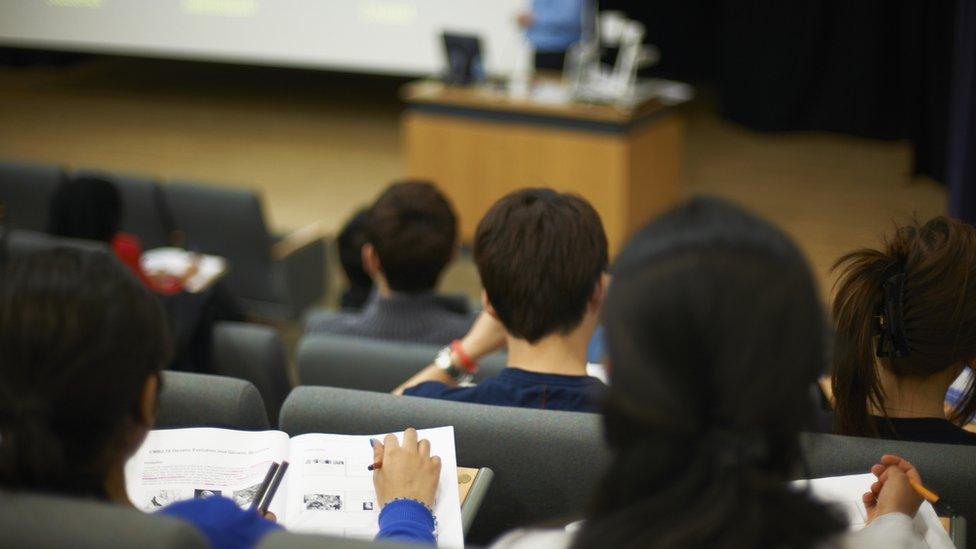Vocational and training qualifications decline during pandemic
- Published
- comments
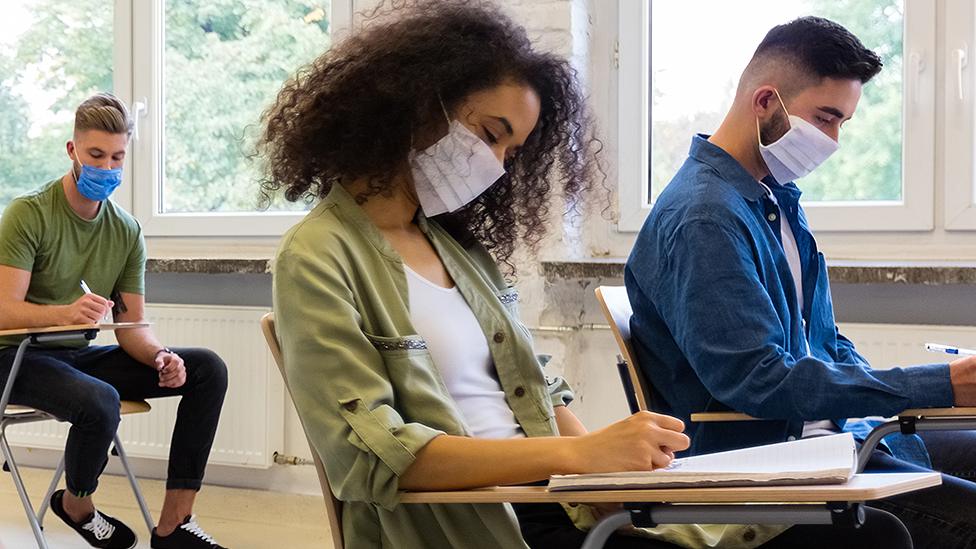
Like GCSEs, AS and A-Levels many exams and assessments in VTQs were cancelled in 2020 and 2021
The number of vocational and technical qualifications (VTQs) awarded in Northern Ireland fell by about 20% during the Covid pandemic.
That is according to a Department for the Economy (DfE) report.
There were just over 142,000 vocational and technical certificates issued in 2020-21, down from almost 178,000 in 2018-19.
Like GCSEs, AS and A-Levels, many exams and assessments in VTQs were cancelled in 2020 and 2021.
That meant schools and colleges calculated grades in BTECs and other VTQs for their students.
Widespread disruption
The Covid pandemic caused widespread disruption to teaching in schools, further education (FE) colleges and universities during the 2019-20 and 2020-21 academic years.
The department commissioned the Council for the Curriculum, Examinations and Assessment (CCEA) to review what affect that had on the awarding of vocational and technical qualifications in Northern Ireland.
Its report has just been published.
It said many VTQs relied on practical skills or competencies being assessed and that this had proven difficult in some cases during the pandemic.
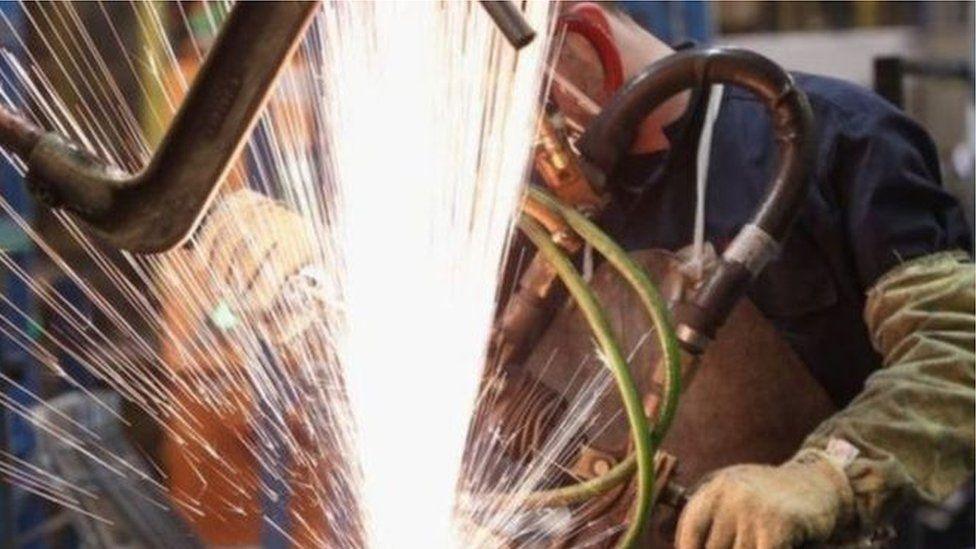
The report said many VTQs relied on practical skills or competencies being assessed which proved to be difficult during the pandemic
"Qualifications that were used to demonstrate practical skills, such as plumbing, construction, performing arts or hairdressing, would still need to be assessed before they could be awarded," the report said.
"In some cases, assessments would need to be delayed until they could be carried out safely in line with public health guidance.
"Any impact of Public Health Agency guidance on a sector had an equivalent impact on learners doing related qualifications."
The report stated that hair, beauty, and hospitality were most affected with some of these learners having deferred to 2022.

Hair, beauty, and hospitality were most impacted with some of these learners have deferred to 2022.
"There was also an impact on sports qualifications; while colleges were able to arrange summer camps, etc, this was at significant cost," the report continued.
"Retention has also been impacted, with learners leaving as they were unable to study."
The report found that some of those factors had led to a 20% fall in the number of VTQ certificates awarded to students compared to 2018-19 - the last full academic year before the pandemic.
But it said the fact that so many qualifications were awarded meant many of the assessment arrangements put in place had worked.
The report also said many lessons had been learned in 2020 which enabled improvements to arrangements in 2021.
"In the context of the Covid-19 pandemic and the related unprecedented challenges, this is a clear indicator of the success of the alternative arrangements put in place for the assessment and awarding of VTQs in 2020-2021," it said.
Staff concerns
However, a number of staff in FE colleges in particular expressed some concerns.
Those included requirements for some students "to be vaccinated before going on placement".
Some others said there was a need to "streamline" the number of VTQs and the number of awarding bodies for them.
The report said there were currently 89 separate awarding bodies and about 2,000 separate VTQs in Northern Ireland.
All FE colleges also expressed concern about falling numbers of FE students to the report's authors.
"All colleges have observed a reduction in enrolments as they perceived that learners were being retained by schools," the report said.
There has been a significant fall in the number of school leavers entering FE colleges in Northern Ireland in recent years.
'Societal stigma'
Separate research commissioned by DfE previously suggested there was still a "societal stigma" stopping some young people taking vocational qualifications instead of a university degree.
Exams and assessments for qualifications returned in 2022.
But the report said that there would be a "longer-term impact of the pandemic on teaching and learning, the potential skills deficits and the need to reintegrate public examinations as the standard norm".
"The effects of the pandemic are increasingly accepted to be wide and far reaching in education and development and research to support policy initiatives to address this will be critical," it concluded.
Related topics
- Published22 January 2021
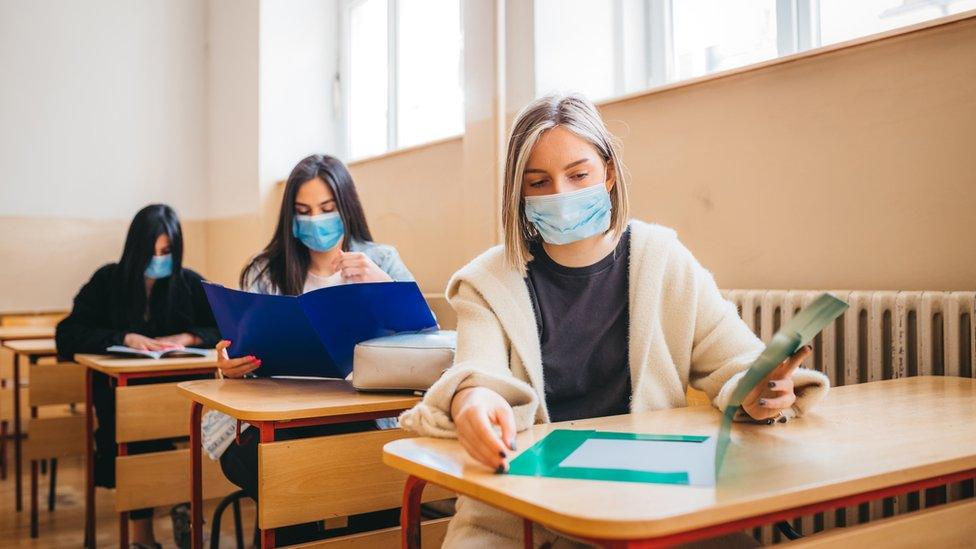
- Published21 January 2022
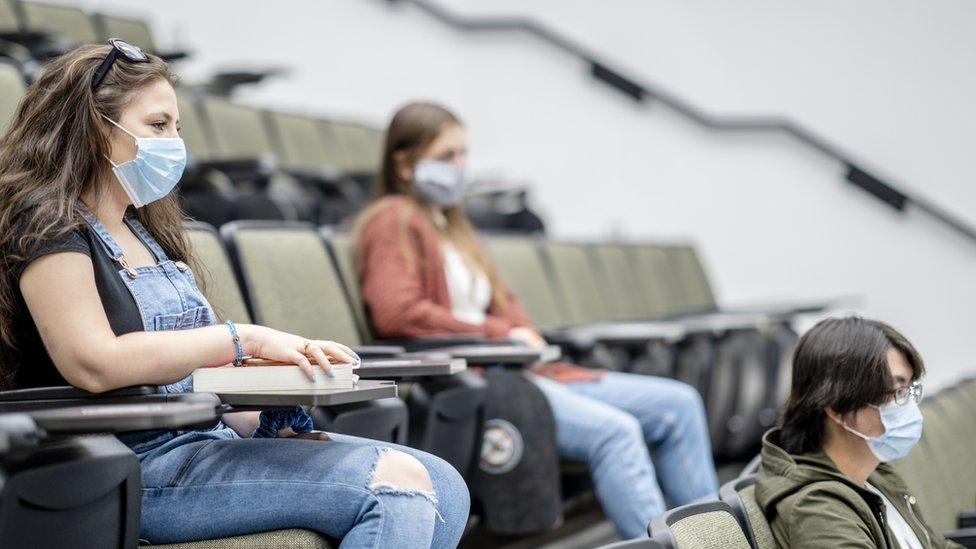
- Published14 July 2022
